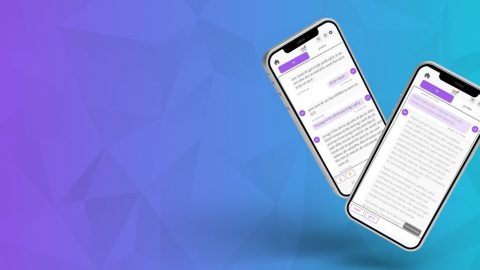European Disability Forum and Microsoft Team up to Enhance Accessibility
Accessibility is now high on the European agenda as the European Union and 24 out of the 27 EU Member States have ratified the United-Nations Convention on the Rights of Persons with Disabilities which states that persons with disabilities have the rights to access the digital environment to the same extent as anyone else. The European Digital Agenda and the European Disability Strategy 2010-20 have announced the presentation of a European Accessibility Act and of proposal for legislation covering access to public sector websites and websites delivering basic services to citizens.
In this context, Microsoft and EDF support the plan of the European Commission to deliver an inclusive web environment that can be used by all Internet users including persons with disabilities. We also believe that discussion forum where both users and ICT companies discuss accessibility issues is a key component for an accessible web.
During the early days of personal computing, people with disabilities couldn’t access the Internet or were only able to access limited information. Robert Sinclair, Chief Accessibility Officer at Microsoft Corporation, mentioned that for people with disabilities accessibility provides the opportunity to participate in activities that many of us take for granted. Microsoft is working with industry to lead an effort to create a clearly defined professional society related to accessibility that defines necessary skills and a network that allows for the exchange of best practices and knowledge. The society could develop and administer one or more professional accessibility certifications and offer continuing education to help individuals maintain their expertise as the field evolves, improving accessibility of IT for people with disabilities.
Making websites accessible to Internet users with disabilities is about enabling all citizens to access public services, to watch news online, apply for jobs, book travel tickets or pay one’s taxes online; the users’ experience is essential. EDF Director, Carlotta Besozzi, highlighted the too slow progress made and the challenges that persons with disabilities face when they want to surf the web. We also would like to stress the role that persons with disabilities must have in the development of products to ensure full accessibility.
Concluding the event, Microsoft and EDF reaffirmed the common objective that the web and digital environment must be made accessible to all, including persons with disabilities, as access to information is indispensable to take part in society and a potential market opportunity for the ICT sector. In this respect, EDF and Microsoft look forward to the upcoming publication of the European Accessibility Act, which could establish a European level playing field as regards accessibility requirements for the ICTs at large.
Carlotta Besozzi, EDF Director, said: “We are glad about this opportunity to express common views with Microsoft, a major player of the ICT sector. There is still a lot of work ahead of us to improve the access experience of persons with disabilities and ICT companies have a key role to play there. It is through increased cooperation that we will manage to go towards an inclusive web of all Internet users, including persons with disabilities.”
Robert Sinclair, Microsoft Chief Accessibility Officer, said: “Despite improvements in accessible design, accessibility is an area that requires the technology industry to continue to innovate and collaborate in new ways to reinforce design and development best practices and remove barriers for people with disabilities and impairments. Collaboration with organizations such as EDF is pivotal to improving the state of accessibility for people of all ages and ability, providing opportunity and access to the 1 Billion people worldwide who have a disability.”







